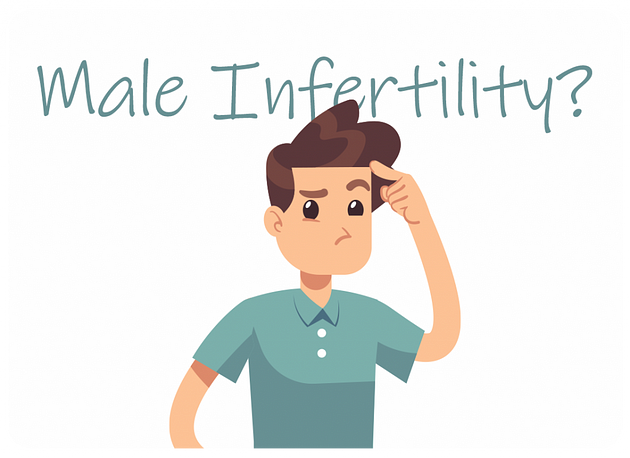Male infertility can be attributed to several factors that affect sperm production, function, or delivery. Understanding these causes is crucial for diagnosis and treatment.

Here are the primary causes of male infertility:
- Sperm Disorders:
- Low Sperm Count (Oligospermia): This condition occurs when the semen ejaculated during an orgasm contains fewer sperm than normal. A low sperm count can significantly reduce the chances of conception.
- Poor Sperm Motility (Asthenospermia): Sperm motility refers to the ability of sperm to move effectively through the female reproductive tract to fertilize an egg. Poor motility can impair sperm’s ability to reach and penetrate an egg.
- Abnormal Sperm Morphology (Teratospermia): Sperm morphology refers to the size and shape of sperm. Abnormal morphology can make it difficult for sperm to fertilize an egg naturally.
2. Ejaculation Issues:
- Erectile Dysfunction: Difficulty in achieving or maintaining an erection can interfere with the ability to ejaculate and deliver sperm into the female reproductive tract.
- Premature Ejaculation: Ejaculating before or shortly after penetration can prevent sperm from reaching the egg for fertilization.
3. Blockages or Obstructions:
- Obstructive Azoospermia: This condition occurs when there is a blockage or obstruction that prevents sperm from being present in the semen ejaculated during orgasm. It can result from congenital conditions, infections, surgery (e.g., vasectomy), or trauma.
4. Hormonal Imbalances:
- Low Testosterone Levels (Hypogonadism): Testosterone plays a crucial role in sperm production. Low levels of testosterone can impair sperm production and fertility.
- Hyperprolactinemia: Elevated levels of prolactin, a hormone produced by the pituitary gland, can disrupt the hormonal balance necessary for sperm production.
5. Genetic Factors:
- Genetic Abnormalities: Genetic disorders such as Klinefelter syndrome (extra X chromosome), Y chromosome deletions, and chromosomal translocations can affect sperm production and quality.
6. Varicocele:
- A varicocele is a swelling of the veins that drain the testicle. It is a common cause of male infertility and can lead to decreased sperm production and quality.
7. Environmental Factors:
- Exposure to Toxins: Prolonged exposure to environmental toxins such as pesticides, heavy metals, and chemicals can affect sperm production and function.
- Heat: Increased scrotal temperature due to factors like frequent sauna use, tight clothing, or prolonged sitting can negatively impact sperm production.
8. Lifestyle Factors:
- Smoking: Tobacco use can impair sperm production and function.
- Alcohol and Drug Use: Excessive alcohol consumption and illicit drug use can affect sperm quality.
- Obesity: Being overweight or obese can adversely affect male fertility.
9. Medical Conditions:
- Diabetes: Poorly controlled diabetes can contribute to infertility by affecting sperm production and function.
- Infections: Certain infections, such as sexually transmitted infections (STIs), can interfere with sperm production or cause scarring that blocks the passage of sperm.
10. Age: Advanced age can affect sperm quality and quantity, although men continue to produce sperm throughout their lives.
Identifying the specific cause(s) of male infertility often requires a thorough medical evaluation, including semen analysis, hormonal testing, genetic testing, and imaging studies. Treatment options vary depending on the underlying cause but may include medications, surgery, lifestyle changes, or assisted reproductive technologies (ART) such as in vitro fertilization (IVF) with intracytoplasmic sperm injection (ICSI). Early diagnosis and appropriate treatment can significantly improve the chances of achieving pregnancy for couples experiencing male infertility.
Comments
Post a Comment